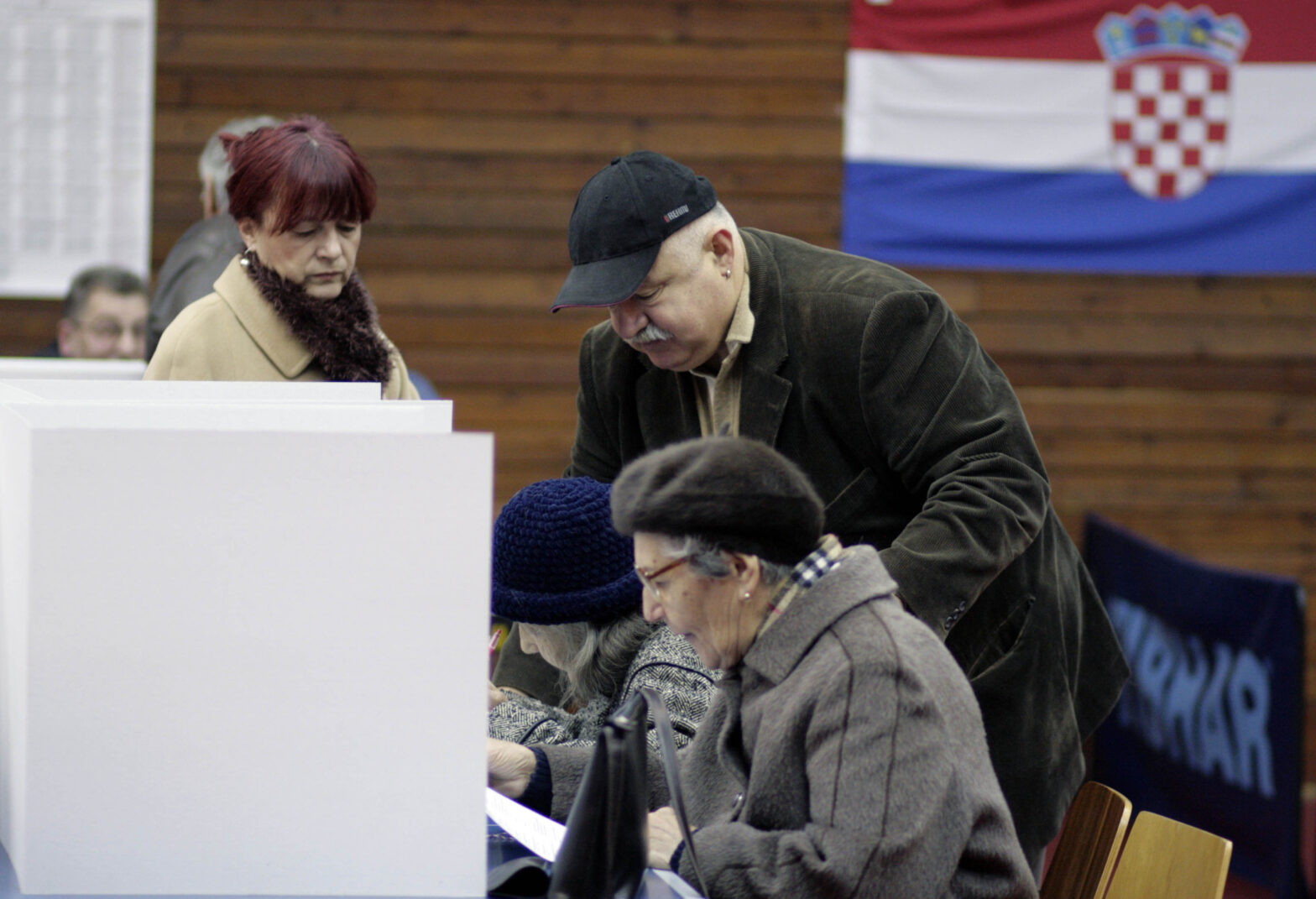At the election held on January 2, 2005 citizens of theRepublic of Croatia were electing the president of the Republic of Croatia among 13 candidates. Since none of the candidates received 50% + 1 vote at the election, in the second round of the election held on January 16, 2005 they were electing the president of the Republic of Croatia between two candidates. 4 403 871 voters were listed in the Electoral Register in the first round of the election, while 4 404 976 voters were listed in the second round.
At the election held on January 2, 2005 citizens of theRepublic of Croatia were electing the president of the Republic of Croatia among 13 candidates. Since none of the candidates received 50% + 1 vote at the election, in the second round of the election held on January 16, 2005 they were electing the president of the Republic of Croatia between two candidates.
4 403 871 voters were listed in the Electoral Register in the first round of the election, while 4 404 976 voters were listed in the second round. 4 003 645 voters were included in the lists for voting in the Republic of Croatia in the first, and 4 004 750 voters in the second round, while 400 226 voters were included in the list of voters voting abroad in both rounds of the election.
Election was conducted in the total of 6 731 polling stations in the first round and 6 724 in the second, 155 of which were located abroad.
Both rounds of the election for the president of the Republic of Croatia were monitored by 1000 GONG observers allocated to polling stations and to 61 mobile team that visited additional 803 polling stations in the first round and 79 mobile teams that visited 1180 polling stations in the second round. Mobile teams visited polling stations where there were no GONG observers present or where some problems occurred, which covered in total around 20%, and 30% of all polling stations in Croatia.
GONG observers monitored the election also in Diplomatic – Consular Offices of the Republic of Croatia in Graz, Vienna, Stuttgart, Berlin, Livno, Siroki Brijeg, Mostar, Paris and The Hague in the first round of the election, and in Graz, Vienna, London, Paris, the Hague, Zurich, Mostar and Orasje in the second round, while 6 mobile teams visited polling stations in Bosnia and Herzegovina (Bihac, Livno, Tomislav, Neum, Ljubuski, Grude, Posusje, Citluk, Stolac, Capljina, Mostar and Siroki Brijeg) on the day of the election.
GONG’s general assessment is that the election, with the exception of some polling stations in Bosnia and Herzegovina, were conducted in accordance with the election legislation although there were some problems with the violations of election procedures by some polling commissions, voting of voters who were unable to attend the polling station, voters’ lists, unlawfully set up polling commissions consisting of members of political parties and violations of election silence. The level of polling commissions’ professionalism and understanding of the election procedures ranged from satisfactory to very good, with certain exceptions. Irregularities that were noticed were successfully removed in cooperation with election administration bodies.
We find the conduct of the election on polling stations in Bosnia and Herzegovina which GONG was able to observe or inspect during or after the first round unsatisfactory due to the serious violations of election rules and regulations, such as for example tendering of ballots, partisan polling commissions or voting on behalf of several different persons. The conduct of the second round was satisfactory, since some of the irregularities were corrected in cooperation with election administration bodies, but also due to the higher number of observers. In both rounds of the election problems with voters’ lists were rather obvious, with the large number of deceased persons included in the lists and a large number of persons who came to the polling stations on the election day with the proof of permanent stay or residence in Bosnia and Herzegovina who were not included in voters’ lists.
Read full report here (156 KB)
